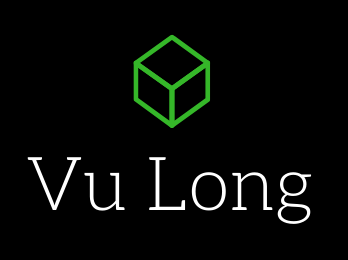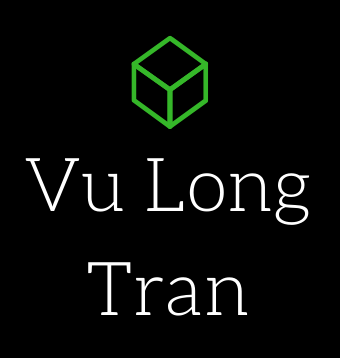This article is to give you a quick overview of what you need to know about trading in Singapore, whether you are new to trading or not. As there are different rules around trading in every country.
Overview
First of all, trading shares is essentially trading a 'share' ('stock') or portion of a business. So you are essentially buying into a business and becoming part-owner of the business.
As a normal shareholder (i.e., one that owns shares in a business), you own part of the business and receive a share of the profits (via dividends) from time to time. You are not involved in any day-to-day operations for the business.
Most everyday people trade what we call 'equities'. Equities, as defined by Investopedia is:
- An instrument that signifies an ownership position, or equity, in a corporation, and represents a claim on its proportionate share in the corporation's assets and profits. (Source: Investopedia)
These equities are traded in marketplaces, and each is different for each country. For Singapore, this marketplace is called the, "Singapore Exchange" (SGX).
In Australia, this is called the, "Australian Stock Exchange" (ASX). In the US, this is called the "Dow", "Nasdaq", and "S&P 500" (the US has three large trading markets).
These markets (sharemarkets) are only open for trading at certain times. They are often closed on public holidays in that country as well. For Singapore, the SGX trading hours are from 9am to 12.30pm and 2 to 5pm, Mondays to Fridays.
Getting started
How to start equities trading in Singapore
In Singapore, you will need a Central Depository (CDP) Securities account. A CDP account is the most basic thing you need before you start investing. It is a securities account for the settlement of trades and need one of these accounts to be able to buy shares in Singapore. It's similar to Computershare's Investor Services in Australia.
This means that: Central Depository (CDP) will maintain all the securities/ shares you will buy on SGX, and electronically records the movements of the shares in and out of your account as you buy and sell them.
Opening a CDP Securities account is free and you only need to open one of these accounts. You will need to be 18 years of age.
So how do we open a CDP account?
There are two ways to open a CDP account.
Option 1. Open one directly via www.cdp.com.sg
Option 2. Apply for a CDP Securities account as the same time you are signing up for a trading broker (details below).
Separate to the CDP Securities account, you will also need a brokerage (brokers) trading account that will allows you to trade shares in the stock market. As the CDP only maintains your securities trading records and you normally would not log into them often except to check these records (so no trading charts, etc. that you may see others using).
So, what is a broker?
A broker is a middleman that will execute your order and handle all other details on your behalf. You tell your broker what shares you want to buy. Alternatively, as most people do, you can carry out your transactions online through the stockbroker’s online trading platform.
Who are the brokers?
You probably have seen a number of different trading brokers in Singapore. Like different banks and their varied banking products, when you choose a broker you are choosing someone to facilitate and manage your transactions.
Who you plan on selecting depends how you plan on trading as to which trading broker you should use. Each has different platforms so the user interfaces and functionality available will vary. Most brokers also allow you to trade on your mobile or tablet.
You can have more than one broker. These are linked to your CDP account when you sign up with a broker.
Here are a list of some common brokers in Singapore
- CIMB Securities - https://www.itradecimb.com.sg
- Citibank - https://www.citibank.com.sg/gcb/investments/citi_brokerage.htm
- DBS Vickers Online Trading - www.dbsvonline.com
- DMG and Partners Securities - www.dmg.com.sg
- AM Fraser Securities- https://www.amfraser.com.sg
- Lim & Tan Securities - www.eq.com.sg
- Maybank Kimeng Securities - www.maybank-ke.com.sg
- OCBC Securities - www.iocbc.com
- Phillip Securities Online Stock and Share Trading - POEMS - www.poems.com.sg
- Standard Chartered Bank - https://www.sc.com/sg/ways-to-bank/online-trading.html
- thinkorswim Singapore: TD Ameritrade - www.thinkorswim.com.sg
- UOB Kay Hian UTRADE - www.utrade.com.sg
- Local shares - do I want to trade local shares?
- International shares - do I want to trading International shares (e.g. shares in the US, Japan, Thailand, etc.)
- Brokerage fees - fees will vary from broker to broker.
- Functionality of trading platform - is there an online or desktop platform that you can use? What sort of functionality and types of trades does it support?
- Mobile/ tablet access - is it important for you to be able to trade on your smartphone or tablet?
As there are many things to look at when considering a broker, here's a great forum to read up on what other fellow traders are using. Here you will find a simple comparison among all brokerages in Singapore in term of product and services provided- updated 2014
http://forums.hardwarezone.com.sg/stocks-shares-indices-92/how-open-stock-trading-account-singapore-updated-2012-a-3628498.html
References:
http://www.investopedia.com/terms/e/equity.asp
http://www.investorwords.com/19345/undischarged_bankrupt.html
Related posts:



